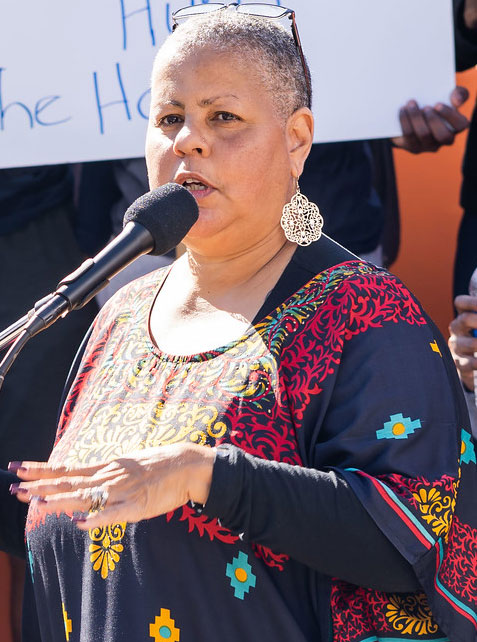
Within 24 hours (May 31-June 1, 1921) the success represented within this segregated community would forever be changed by the destruction of life and property from the burning of 35 square blocks and some 1,200 homes, and the death of as many as 300 people. Then, as in so many other times throughout American history, a resistance to telling the complete story has contributed to the perpetuation of a legacy of American miseducation and inequity.
For many, this week has called into question just how far we have come as a society whose claims to have freedom and justice for all have been slow and arduous for the masses. As a professor of black studies, I’ve been reminded of the violent lynching of African Americans during the Jim Crow era, the death of 14-year-old Emmett Till, and the Kerner Commission report of 1968 that stated America was two nations, one white, one black, separate and unequal.
Yet I’ve also been reminded of the power of the people and their grassroots voices to be the change they wanted to see that enabled a John Lewis of the 1960s to serve as a congressman from Georgia since the late 1980s. And while I applaud and support the efforts of young people and protesters across the nation who have successfully re-energized a movement calling upon our need as a nation to seek and achieve justice, we can’t afford another setback, because as Dr. Martin Luther King Jr. stated, “Injustice anywhere is a threat to justice everywhere.”
In 2008, the election of Barack Obama as president of the United States, by the most diverse representation of our nation, gave promise to people’s belief that anything was possible for black Americans and that as a nation we had finally come to a place where yes we can once again be the change we wanted to see. But could we really? As an African American mother, a Twitter post reminded me of the irony that 20/20 vision represents perfectly balanced sight, yet during this moment in time real clarity is emerging about America’s current lack of perfect protection and progress in the year 2020.
Being black in America has always required the need to do more and be more. As the joys of motherhood have always been shadowed with the need to add survival lessons to what it means to live and breathe being black in America, my children’s rites of passage in life have had to include things like how to be safe when stopped by the police while driving and how to be safe so that you can live long enough to enjoy time with your friends.
I’ve reflected as a mother of black male children upon the achievements of Barack Obama as an example of American success, and cried when recalling how these accomplishments were not seen as enough to prevent him from having to be behind bulletproof glass for eight years.
Yet moving forward in 2020 and beyond, I am reminded that the awesome power of love has moved mountains and that the sacrifice of our ancestors can never be forgotten or be taken lightly or in vain. That the normal of the past has produced the pain of today, which we cannot afford to ever go back to. If we can send a man to the moon, then surely we can eradicate racism. The question has never been can we create a new, more equitable normal. The question has always been, “Do we really want to?”
Thekima Mayasa is the chair of the Black Studies Department at San Diego Mesa College. She lives in Emerald Hills.
This essay originally appeared in the San Diego Union-Tribune.